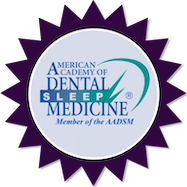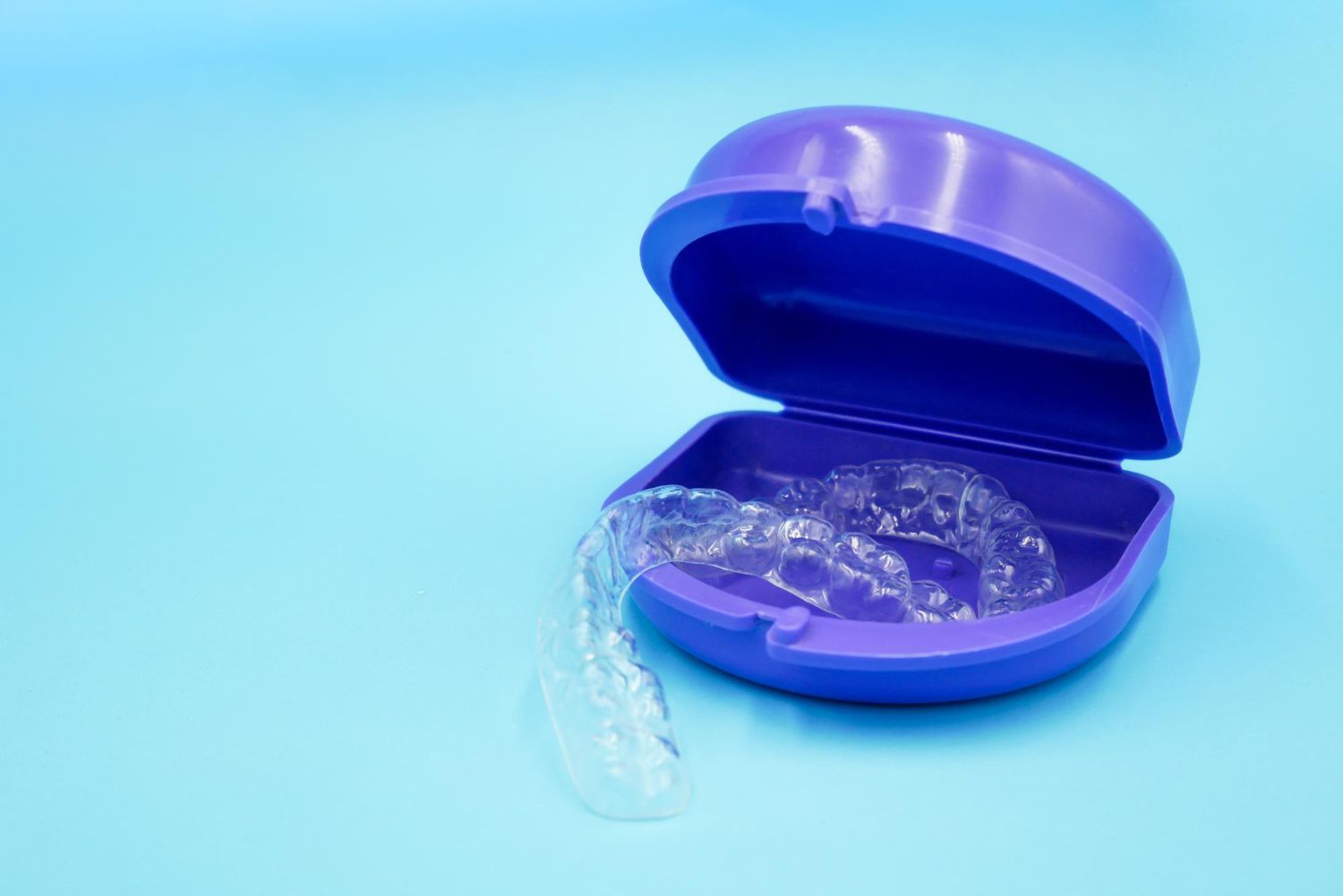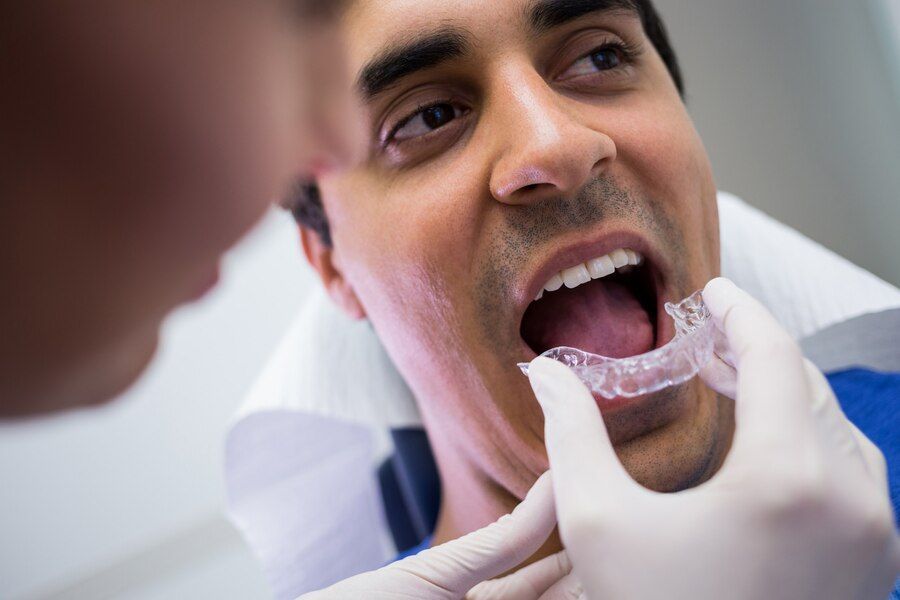Welcome to Fuller Sleep & TMJ Solutions | Greensboro, NC | frontdesk@fullersleep.com
Tips from Dr. Fuller on Reducing Craniofacial Pain

Craniofacial pain can turn everyday experiences into uncomfortable challenges. The discomfort is often felt in the head, neck, and face areas and can affect how you live your life. This type of pain can interrupt simple moments, such as enjoying a meal or having a conversation, by causing distress and making normal activities difficult to manage.
Living with craniofacial pain isn't easy. It can limit your ability to focus at work or school and might even impact your mood. Knowing what triggers your pain can be the first step in managing it. For many, stress and poor posture play major roles in exacerbating symptoms. By understanding these factors, you can take action towards finding relief.
Dr. Fuller provides valuable insights that make this journey easier. Equipped with the right strategies, you can start to regain control and lessen the impact of craniofacial pain on your life. Everyone deserves to enjoy pain-free days, and with the right help, this goal can be within reach.
Understanding Craniofacial Pain and Its Impact
Craniofacial pain is a type of discomfort that affects the head and face area. This pain can originate from muscles, nerves, or bones in the region. It's often caused by various factors, including stress or chronic conditions such as TMJ disorders. The pain can be constant or come and go, affecting how one functions daily.
When craniofacial pain hits, even normal tasks become a struggle. Eating meals, talking with loved ones, or even concentrating on work can turn into challenging tasks. The presence of constant or recurrent pain can lead to frustration and affect one's mood, causing stress and anxiety. These feelings further contribute to decreased productivity and enjoyment of life.
Certain groups are more likely to experience craniofacial pain. It's prevalent in people with TMJ issues, those who grind their teeth, or experience frequent headaches. Age and gender can play a role, with adults often more affected than children and women more than men. Understanding who is at risk can help in taking proactive steps to manage or prevent these painful episodes.
Common Triggers and Causes
Several lifestyle habits can make craniofacial pain worse. Poor posture, especially while using computers or handheld devices, can strain the neck and jaw muscles. Eating hard or chewy foods may also exacerbate pain. Awareness of these habits is important for making necessary changes.
Stress is a significant contributor, causing muscles to tense up, leading to pain. Poor posture adds another layer of strain, especially if one slouches often. These issues are compounded by the daily hustle and bustle, resulting in overlooked body care and attention.
Certain medical conditions can lead to craniofacial pain as well. TMJ disorders often result in discomfort in the jaw and face. Sinus infections, dental problems, and even some types of headaches like migraines can trigger pain in the craniofacial region. Identifying these underlying causes with the help of professionals like Dr. Fuller can provide a pathway to effective management and relief strategies.
Recognizing and managing these triggers is essential in reducing the frequency or intensity of pain episodes. By understanding what causes discomfort, you can implement tactics to alleviate and manage the symptoms effectively.
Dr. Fuller's Expert Tips for Relief
Dr. Fuller provides some fantastic strategies for managing craniofacial pain effectively. Here are a few exercises and stretches that she recommends:
- Jaw Relaxation Exercises: Gently opening and closing your mouth while keeping it relaxed can ease tension.
- Neck Stretches: Tilting your head side to side and holding for a few seconds can help alleviate tightness.
- Face Massages: Softly pressing and massaging temples or along the jaw can provide significant relief.
Nutrition also plays a role in managing pain. Dr. Fuller suggests maintaining a balanced diet rich in nutrients to support muscle health. Staying well-hydrated is also crucial, as dehydration can worsen muscle cramps and tension. Drinking enough water daily helps keep the body functioning optimally.
Relaxation techniques are vital. Dr. Fuller advocates for methods like deep breathing and mindfulness meditation. These practices can lower stress levels, which often contribute to the intensity of craniofacial pain. Setting aside some time each day for these techniques can make a noticeable difference in how you feel.
Long-Term Strategies for Managing Pain
Long-term management is key to reducing craniofacial pain's impact on your life. Regular follow-ups with Dr. Fuller provide consistent care and adjustment of treatment plans as needed. These visits ensure in-depth assessment and modification of strategies to suit your evolving needs.
Lifestyle changes are also essential. Consider these recommendations:
- Ergonomic Adjustments: Make sure your workspace is set up to support your posture, reducing unnecessary neck and jaw strain.
- Stress Reduction: Incorporate activities that lower stress, such as yoga or leisurely walks, into your routine.
- Sleep Hygiene: Establish a calming bedtime routine that promotes restful sleep, keeping your body and mind relaxed.
Oral appliance therapy is another effective method. These devices help reduce jaw tension and realign the bite, providing significant relief for those with TMJ-related craniofacial pain. Working closely with Dr. Fuller, you can find the right appliance to support your long-term health and comfort.
Conclusion
Craniofacial pain doesn't have to control your life. With the right information and support from professionals like Dr. Fuller, you can make informed decisions on managing your pain. Understanding what triggers your discomfort and implementing relief strategies can help you take back your comfort and enjoyment in daily activities.
The journey to relief involves simple lifestyle adjustments, effective exercises, and, when needed, professional treatments. Focusing on long-term strategies helps maintain and even improve your quality of life. While adapting to these changes might take some time, the benefits of reduced pain and increased well-being are worth the effort.
If you're looking for ways to manage your craniofacial pain effectively, reach out to Fuller Sleep & TMJ Solutions, a sleep center in Greensboro. Dr. Fuller and her team are here to provide personalized guidance and treatment options tailored to your needs, helping restore comfort and peace to your everyday life.

CONTACT US
Fuller Sleep & TMJ Solutions
1515 West Cornwallis Dr Suite 110 Greensboro, NC 27408
BUSINESS HOURS
Monday: 8am – 5pm
Tuesday: 8am – 5pm
Wednesday: 8am – 5pm
Thursdays: 8am – 2pm
All Rights Reserved | Fuller Sleep & TMJ Solutions
© 2023 All Rights Reserved | Fuller Sleep & TMJ Solutions
Website designed by: Morningdove - Accessibility Statement












